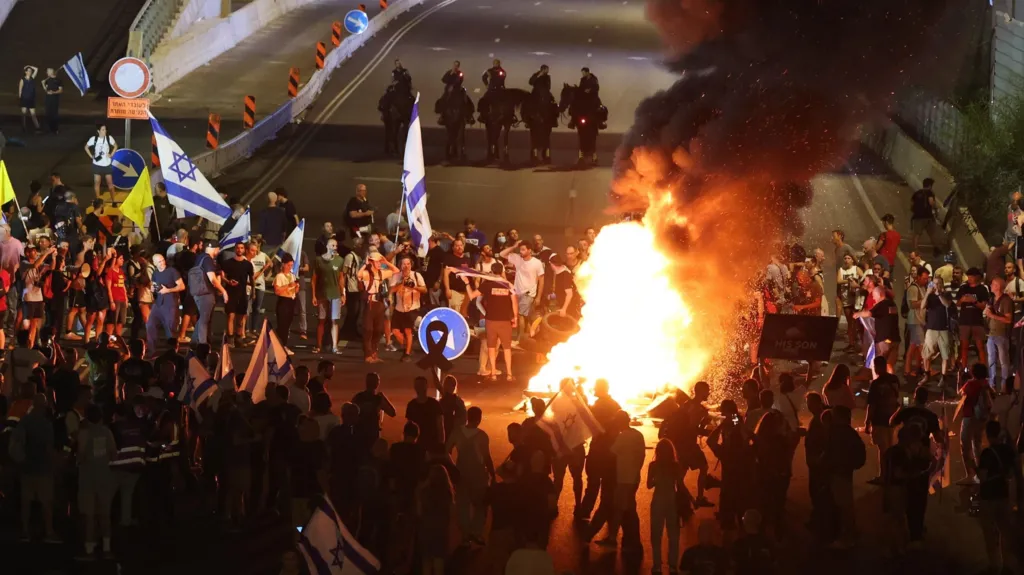Israel protesters intensify pressure against plan to expand Gaza war

Protesters, including family members of 50 hostages in Gaza, fear the plan puts the lives of hostages at risk
Thousands of protesters have taken to the streets across Israel to oppose the government's plan to expand its military operation in Gaza.
On Friday, Israel's security cabinet approved five principles to end the war that included 'taking security control' over the Gaza Strip, with the Israeli military saying it would "prepare for taking control" of Gaza City.
Protesters, including family members of 50 hostages in Gaza, 20 of whom are still thought to be alive, fear the plan puts the lives of hostages at risk, and urged the government to secure their release.
Israeli leaders have rejected criticism of their plan, with Prime Minister Benjamin Netanyahu saying, "this will help free our hostages".
A group representing families of the hostages said on X: "Expanding the fighting endangers the hostages and the soldiers - the people of Israel are not willing to risk them!"
One protester Shakha, rallying in Jerusalem on Saturday, told the BBC: "We want the war to end because our hostages are dying there, and we need them all to be home now."
"Whatever it takes to do, we need to do it. And if it needs to stop the war, we'll stop the war."
Among the protesters in Jerusalem was a former soldier who told the BBC he is now refusing to serve. Max Kresch said he was a combat soldier at the beginning of the war and "has since refused."
"We're over 350 soldiers who served during the war and we're refusing to continue to serve in Netanyahu's political war that endangers the hostages (and) starving innocent Palestinians in Gaza," he said.
The Times of Israel reported that family members of hostages and soldiers at a protest in Tel Aviv near the Israel Defense Forces (IDF) headquarters called on other soldiers to refuse to serve in the expanded military operation to protect hostages.
The mother of one of the hostages has called for a general strike in Israel, and the main opposition leader, Yair Lapid, said it would be a "justified and worthy" response.
However, the country's main labour union will not back a strike, according to the Times of Israel.
During Saturday night's demonstrations, Tel Aviv's Ayalon Highway was blocked by protesters who lit bonfires.
